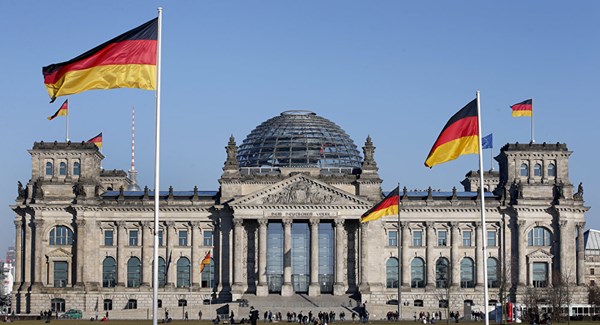Berlin admits it cannot protect German companies from US sanctions on Iran
Germany does not see any simple opportunities to protect its businesses from the new sanctions which Washington may place on Iran in the next three months, German Foreign Minister Heiko Maas told Bild in an interview.
“I don’t see a simple solution for protecting our companies from all risks related to sanctions in the US,” Maas observed.
He added that the European Union, whose companies have made a large number of deals with Iran following the lifting of the sanction regime in 2016, intends to pressurize Tehran to negotiate with the US.
“We want to force Iran to adhere to the conditions of the nuclear agreement. At the end of the day, Iran is prepared to talk,” he added.
Washington is already starting to put pressure on European businesses to restrict Iranian contacts. Last week US Ambassador to Berlin Richard Grenell openly demanded that German companies end their presence in the Iranian market.
“American sanctions will strike critical sectors of the Iranian economy. German organizations engaging in business in Iran will quickly withdraw their activity,” he said.
The day before, Iranian Foreign Minister Zarif threatened that his country will prepare to resume uranium enrichment “without any restrictions” if Europe does not provide any trade guarantees.
European oil refinery plants and trading companies have already begun preparing for a reduction in oil purchases from Iran, sources in the sector told Bloomberg.
“If any sanctions or embargoes are introduced, we will immediately terminate all our current deals and look for alternative suppliers,” remarked the Spanish oil refinery Cia Espanola de Petroleos SAU. One trading company reported anonymously that its staff had been warned that they must consult with the legal and financial departments before making any deals relating to Iran.
In the context of the nuclear deal, Tehran agreed to abandon one facility suitable for uranium enrichment, reduce the number of centrifuges by two thirds, and maintain uranium enrichment at the lower level for 15 years.
Specialists from the International Atomic Energy Agency (IAEA) received the right to control the reserves and production of uranium concentrate for 25 years. The document included an embargo on the shipment of arms to Iran for five years.
In January 2016, the IAEA confirmed that Iran had been complying with its obligations. The restrictions on trade with foreign companies were subsequently lifted, and $50 billion of Iran’s offshore assets were unfrozen.
In February 2017, Tehran tested ballistic missiles. The US responded by placing new sanctions on 13 physical entities and 12 organizations. The absence of a point in the agreement prohibiting ballistic missile testing led Trump to call the agreement a failure, and ultimately withdraw from it in May 2018.
